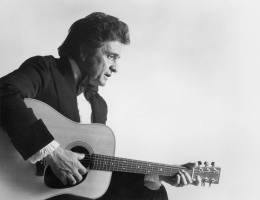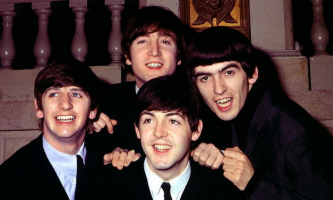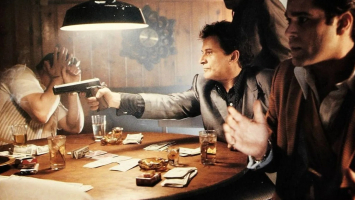Top 15 Best Plays Of All Times
Attending a live show is exciting. It's practically difficult to select the best plays from among the innumerable productions that have been created since the ... read more...invention of theater. But Toplist has done just that with a list of the best plays of all time. Which plays are the best? What does that mean? The decision-making process took into account various factors, including merit, acceptance, universality, sway, and historical significance. The works on this list range from Greek tragedies to Shakespearean comedies to Tony Award winners. Continue reading to start the discussions!
-
Shakespeare's tragedy Hamlet, also known as The Tragedy of Hamlet, Prince of Denmark, was written between 1599 and 1601. This is one of the Best Plays Of All Times. With 29,551 words, it is Shakespeare's longest play. The play, which is set in Denmark, tells the story of Prince Hamlet and his quest for vengeance against his uncle Claudius, who killed Hamlet's father in order to usurp the kingdom and wed Hamlet's mother.
One of the most potent and significant pieces of writing in history is Hamlet. Since 1879, the Royal Shakespeare Company and its predecessors have played this play the most in Stratford-upon-Avon, making it one of Shakespeare's most well-known plays both during his lifetime and now.
Shakespeare's Hamlet is based on the Amleth narrative, which was recorded by the 13th-century historian Saxo Grammaticus in his Gesta Danorum and later repeated by the 16th-century academic François de Belleforest. Shakespeare may have also referenced an older Elizabethan drama known as the Ur-Hamlet, while other academics contend that Shakespeare originally wrote the Ur-Hamlet and later revised it to produce the current version of Hamlet. Richard Burbage, a fellow performer and one of Shakespeare's greatest tragedians, was almost definitely the intended recipient of his version of the title part. The part has been played by a large number of critically acclaimed actors in each succeeding century in the 400 years since its birth.
What lacks in this tragedy? The story of "The Melancholy Dane" contains exquisite poetry, deep psychology for characters of both sexes, a healthy dosage of comedy to lighten the mood, and, depending on the director's interpretation, a crackling good mystery. Shakespeare employed a genre that was commonplace at the time to produce a work that will live on in Western literature, whether it is dramatic or not. There are countless ways to discuss and analyze this play.
Written by: William Shakespeare
Created: 1559 -1601
https://www.youtube.com/ 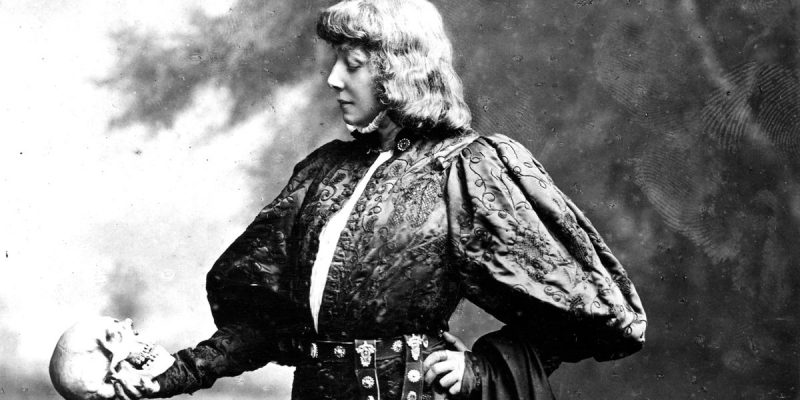
https://www.shakespeare.org.uk/ -
American playwright Eugene O'Neill created the four-act play Long Day's Journey into Night between 1939 and 1941. It was first released posthumously in 1956. The play is regarded as one of the best American plays of the 20th century and is usually regarded as his magnum masterpiece. It had its world premiere in Sweden in February 1956, and in November 1956 it had its Broadway debut, receiving the Tony Award for Best Play.
This autobiographical play about O'Neill's formative years burns hot from beginning to end. James, Mary, and their sons Edmund and Jamie make up the Tyrone family. The play's scenario, which takes place over the course of one day, is referred to as "The Long Day." Immediately after it begins, you can sense the rawness as a guy and his two adult kids work to keep their wife calm after she spent time in rehab for morphine addiction. From there, things get worse as she starts using again and the three boys start drinking. This play represents the apex of American family drama and was written from a position of total rawness.
For Long Day's Journey into Night, O'Neill received the 1957 Pulitzer Prize for Drama posthumously. The play is based on my life. As a follow-up, O'Neill created A Moon for the Misbegotten (1952), which portrayed Jamie Tyrone's later life.Written by: Eugene O'Neill
Created: 1939 - 1941
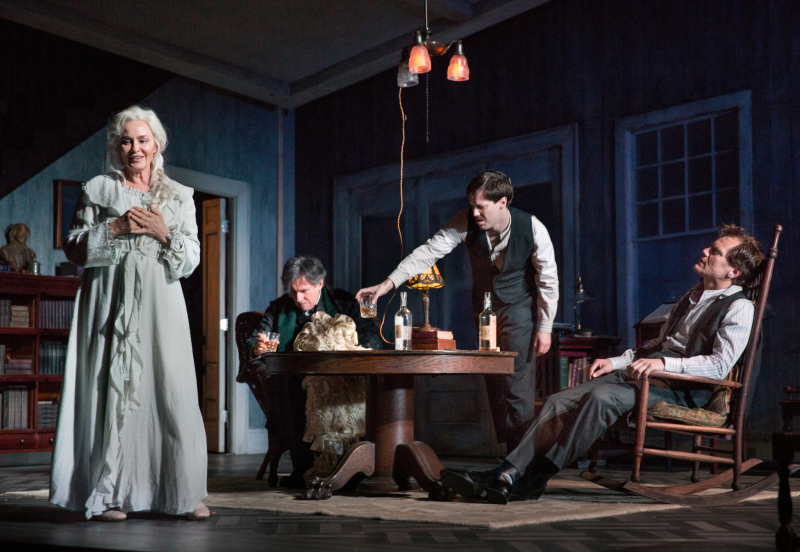
https://www.nytimes.com/ 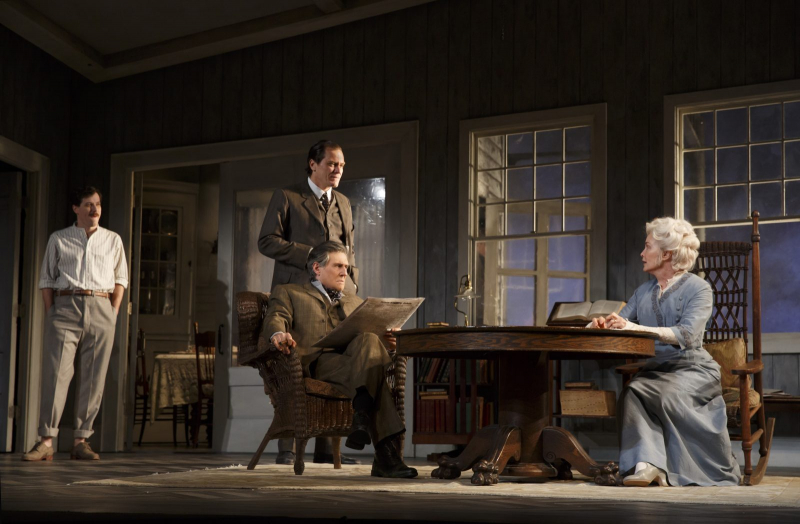
https://www.tompye.com/ -
This is one of the Best Plays Of All Times. Edward Albee's play Who's Afraid of Virginia Woolf? was first performed in October 1962. It explores the difficulties Martha and George, a middle-aged couple, face in their marriage. They unwittingly invite Nick and Honey, a younger couple, as guests one late night after a university faculty party, drawing them into their sour and strained relationship. Their words—and what powerful words they are—are their weapons. As secrets, grudges, and even genuine devotion are revealed, erudition and vulgarity combine to poetic heights.
The play has three acts and typically lasts little under three hours, including two 10-minute intermissions. The name of the renowned English author Virginia Woolf is substituted in the song "Who's Afraid of the Big Bad Wolf?" from Walt Disney's Three Little Pigs (1933) for the title. Throughout the play, Martha and George perform this rendition of the song frequently.
Who's Afraid of Virginia Woolf? received the 1962–63 New York Drama Critics Circle Award for Best Play as well as the 1963 Tony Award for Best Play. The modern stage frequently revives it. Ernest Lehman wrote the screenplay, Mike Nichols directed it, and Richard Burton, Elizabeth Taylor, George Segal, and Sandy Dennis starred in the 1966 motion picture adaptation.Written by: Edward Albee
Date premiered: October 13, 1962

https://www.theatermania.com/ 
https://www.wbur.org/ -
The stage drama Death of a Salesman was written by American writer Arthur Miller in 1949. In February 1949, the play had its Broadway debut and ran for 742 performances. A traveling salesman named Willy Loman, who is dissatisfied with his life and seems to be aging, is the protagonist of this two-act tragedy set in 1940s New York and recounted in a montage of recollections, nightmares, and disputes. Not only to Willy Loman and the depressing facts of his life as a meager traveling salesman and the illusions that barely keep him afloat, but also to Miller's magnificent contemporary tragedy about the average Joe. This one smacks the audience in the gut repeatedly because it lets us see his heartbreaking final fall while simultaneously letting us peek into his head to ostensibly sense his deep-seated suffering. It is both gritty naturalistic and ethereally dream-like.
A number of topics, including the American Dream, the nature of truth, and infidelity, are present in the play. It investigates the protagonist's psychological disarray and the effects of capitalism society on his existence. It received the 1949 Tony Award for Best Play and the Pulitzer Prize for Drama. Some critics believe it to be among the best plays of the 20th century.
The play has received four Broadway revivals since its debut, earning three Tony Awards for Best Revival. It has been adapted for the big screen ten times, including a Fredric March-starring 1951 version from a screenplay by Stanley Roberts.
Written by: Arthur Miller
Created: 1949
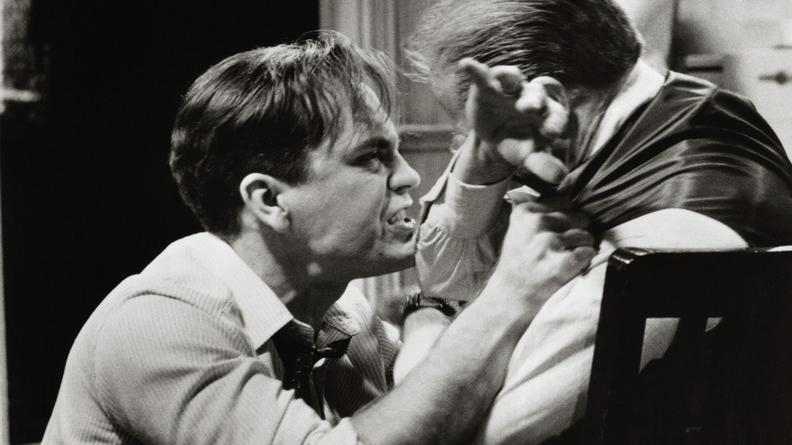
https://ndla.no/ 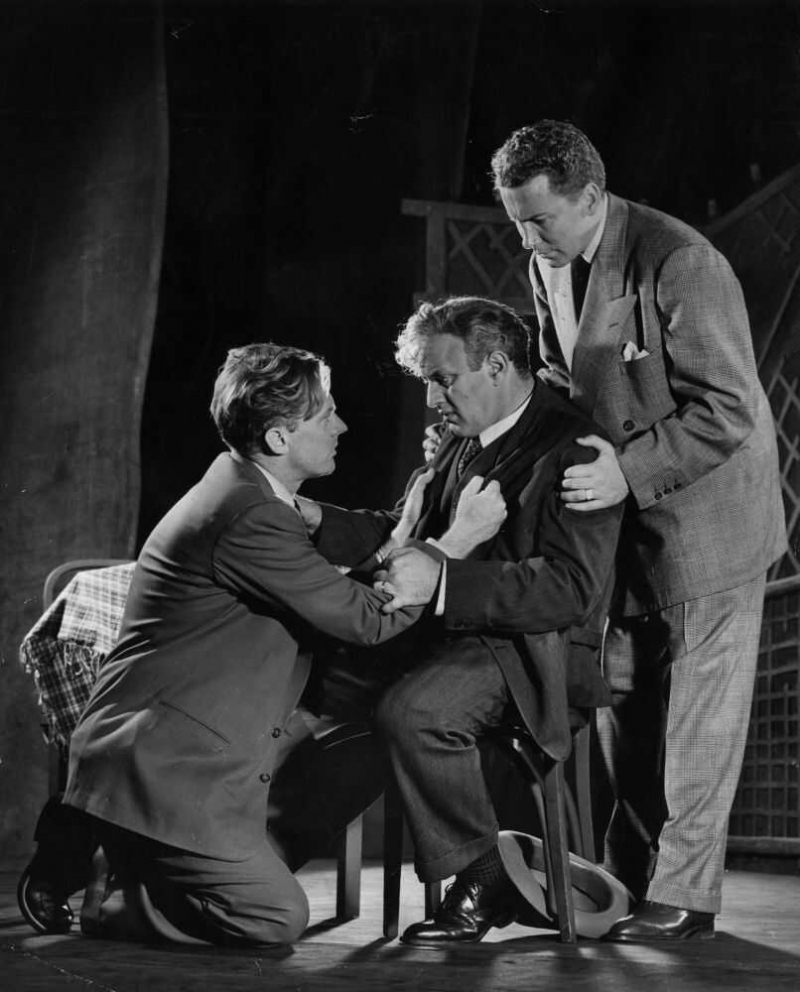
https://www.npr.org/ -
The first performance of Sophocles' Attic tragedy, Oedipus Rex, also known by its Greek title Oedipus Tyrannus or Oedipus the King, took place about 429 BC. As stated by Aristotle in the Poetics, the title was originally known to the ancient Greeks simply as Oedipus. Tyrant was a term used in antiquity to describe a ruler who had no right to reign, but it did not always have a bad meaning.
Oedipus Rex was composed roughly a dozen years after Antigone, the second of Sophocles' three Theban plays that have survived and tell the tale of Oedipus. However, it comes first in the order of events as they are described in the plays, then Oedipus at Colonus, and finally Antigone.
Before the events of Oedipus Rex began, Oedipus had unknowingly carried out a prophecy that stated he would kill his father Laius (the previous king) and wed his mother Jocasta. As a result, he had become the king of Thebes (whom Oedipus took as his queen after solving the riddle of the Sphinx). In order to put a stop to a plague that is devouring Thebes, Oedipus sets out to find Laius' killer in Sophocles' play, but he has no idea that the person he is hunting for is none other than himself. After the truth is revealed at the end of the play, Jocasta hangs herself, and Oedipus then goes on to tear out his own eyes in grief after realizing his patricide and incest.
The monarch's life's facts and the pride that drives him and his family toward a catastrophic end are slowly revealed by Sophocles, and it never stops being genuinely captivating. This one endures merely because of its great theatrical storytelling. Aristotle makes numerous references to the play in his Poetics in order to illustrate various elements of the genre.
Written by: Sophocles
Created: c. 429 BC
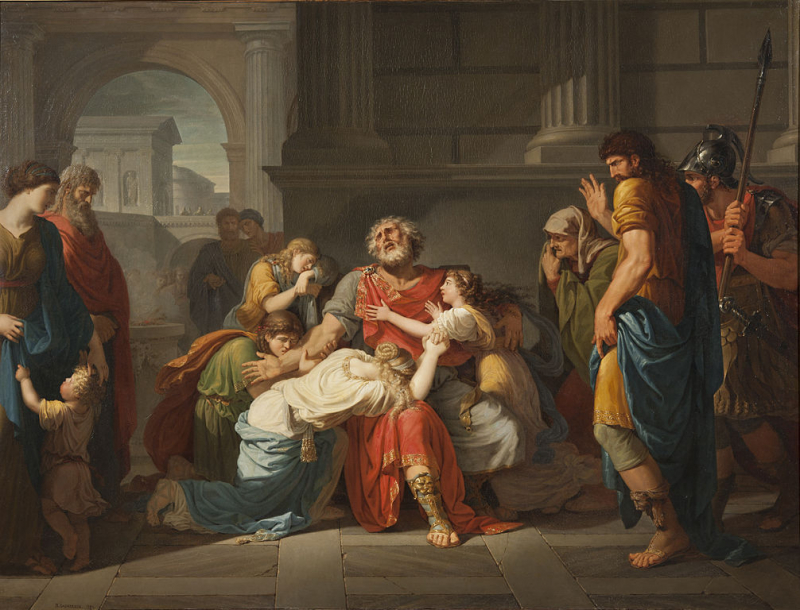
https://www.ancient-literature.com/ 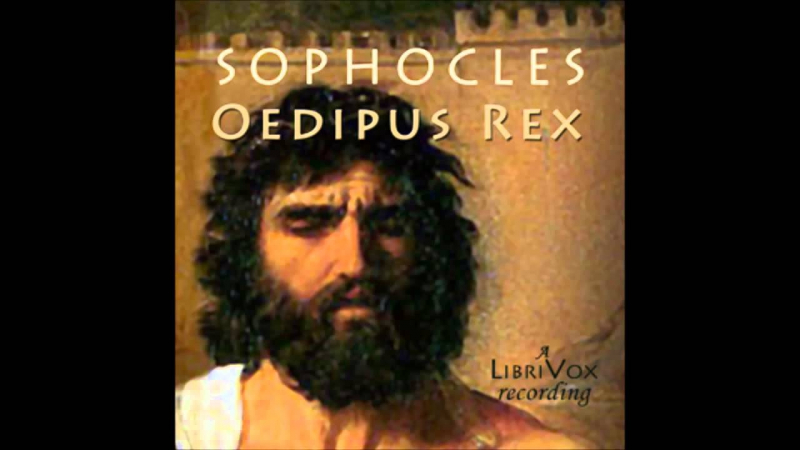
https://www.youtube.com/ -
American playwright Tony Kushner has written a two-part play titled Angels in America: A Gay Fantasia on National Themes. Numerous honors were bestowed upon the piece, including the Drama Desk Award for Outstanding Play, the Tony Award for Best Play, and the Pulitzer Prize for Drama. This is also one of the Best Plays Of All Times. The play's first act debuted in 1991, and the second act did so in 1992. It debuted on Broadway in 1993.
The play is a sophisticated, frequently allegorical, and occasionally symbolic discussion of AIDS and homosexuality in 1980s America. Some main and minor characters are ghosts or the spirits of deceased people (ghosts). Multiple actors can portray multiple roles in the play. One homosexual and one straight couple in Manhattan are initially and mostly the focus of the tale, which also includes various other storylines, some of which periodically intersect. The play's two sections, Perestroika and Millennium Approaches, can be performed individually. The play's description, "A Gay Fantasia on National Themes," accurately describes everything that happens, and this one thrills because to Kushner's audacious narrative and unrestrained creativity.
The drama underwent a highly regarded West End revival in 2017, which took home the Laurence Olivier Award for Best Revival in 2018. The show moved to Broadway later that year and got eleven Tony Award nominations, which at the time was a record for a play. Best Revival of a Play, Best Actor in a Leading Role in a Play (Ashley Garfield), and Best Actor in a Featured Role in a Play (Nathan Lane) were the accolades it received.
Written by: Tony Kushner
Created: 1991

https://www.in-the-key-of-gf.com/ 
http://www.theatrescenes.co.nz/ -
Tennessee Williams' 1944 debut of The Glass Menagerie, a memory play, propelled him from obscurity to renown. This is one of the Best Plays Of All Times. Strong autobiographical elements are present in the play, which includes characters that are modeled after the playwright, his theatrical mother, and his mentally ill sister. This piece takes a gentle sliver of a narrative and transforms it into something magical, whereas some of his other plays go further in terms of bending stage traditions or addressing more serious topics. Williams drew inspiration for the play from a previous short tale as well as a screenplay he had created under the working title The Gentleman Caller.
1944 saw the play's Chicago premiere. After a rocky beginning, Chicago critics Ashton Stevens and Claudia Cassidy supported it, and their passion helped draw spectators so the play's producers could transfer it to Broadway, where it received the 1945 New York Drama Critics' Circle Award. Williams' first well-received play, The Glass Menagerie, set him on the path to becoming one of the most admired playwrights in America.
Written by: Tennessee Williams
Created: 1944
https://bransonarts.org/ 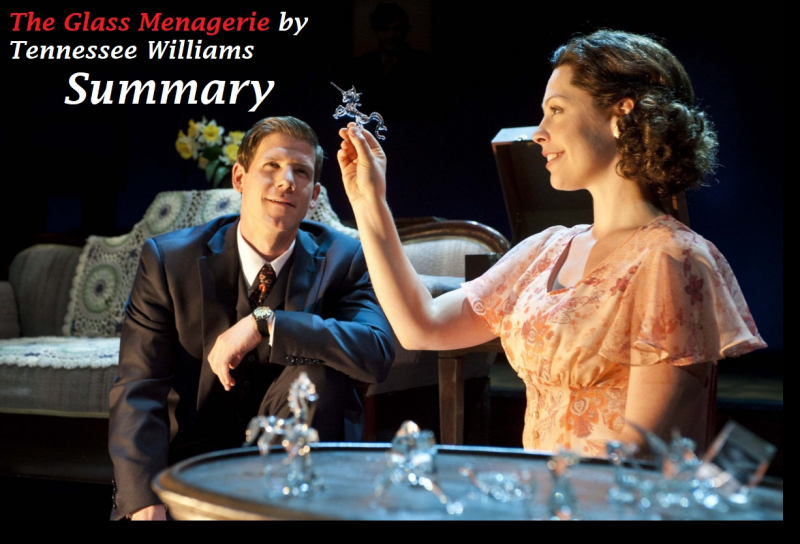
https://www.techtwoblog.com/ -
John Osborne wrote the realist play Look Back in Anger in 1956. It concentrates on the life and marital troubles of Jimmy Porter, an intellectual and educated but disenchanted young man from the working class, and Alison, who is similarly capable but unresponsive. The supporting cast also includes Helena Charles, Alison's snooty acquaintance, and Cliff Lewis, a friendly Welsh lodger who tries to maintain order.
Osborne's first commercially successful play, Look Back in Anger, was inspired by his personal life and his failed marriage to Pamela Lane. In reference to Osborne and his generation, who used the harshness of reality in the theater as opposed to the more escapist theatre that characterized the preceding generation, the play gave origin to the term "angry young men." Look Back in Anger is regarded as one of the earliest examples of kitchen sink drama in theatre because of its brutal realism.
The play garnered positive reviews from the theater community, enjoyed great commercial success, was moved to the West End and Broadway, and even went on tour to Moscow. It is said to have transformed Osborne from a struggling playwright into a rich and well-known figure. It also helped him win the Evening Standard Drama Award for 1956's most promising dramatist. Tony Richardson turned the play into a film with the same name, starring Richard Burton and Mary Ure, and it was released in 1959. A 1958 film's production is credited.
Written by: John Osborne
Created: 1956
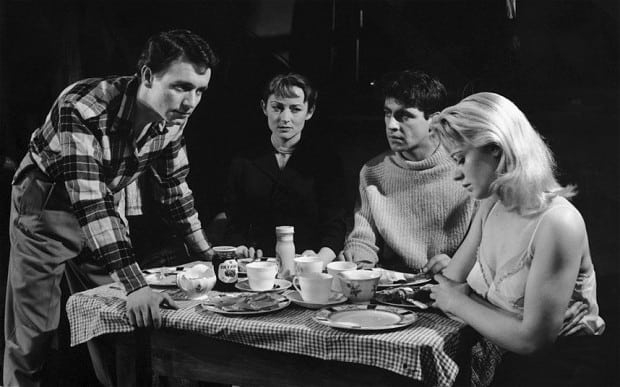
https://blueprintreview.co.uk/ 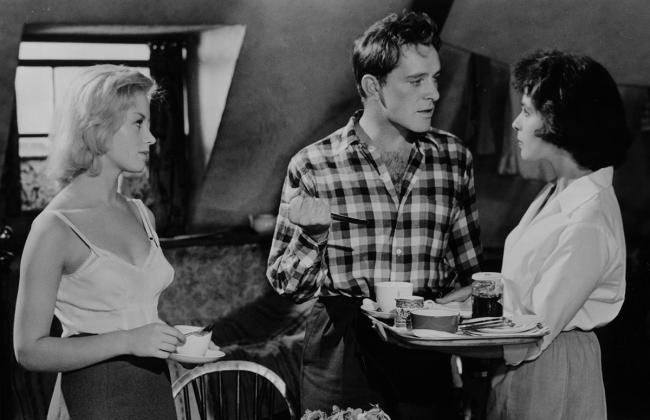
https://bampfa.org/ -
In 1959, Lorraine Hansberry's play A Raisin in the Sun made its Broadway debut. The poem "Harlem" by Langston Hughes, sometimes known as "A Dream Deferred," is where the title originates. In the story, a Black family in south Chicago encounters racism, housing discrimination, and assimilation as they try to improve their financial situation with an insurance settlement after the father's passing.
With this drama about an African-American family trying to improve itself by relocating to a new neighborhood, Hansberry broke down a glass ceiling and became the first Black woman to have a play presented on Broadway. Raisin is included on this list for more reasons than just just one. Raisin communicates to audiences of all races and generations because its story components and themes span ethnic and historical divisions, as you saw with not one but two excellent revivals in a period of ten years. It was chosen the best play of 1959 by the New York Drama Critics' Circle, and in more recent years, publications like The Independent and Time Out included it on their lists of the greatest plays ever written.
Written by: Lorraine Hansberry
Created: 1959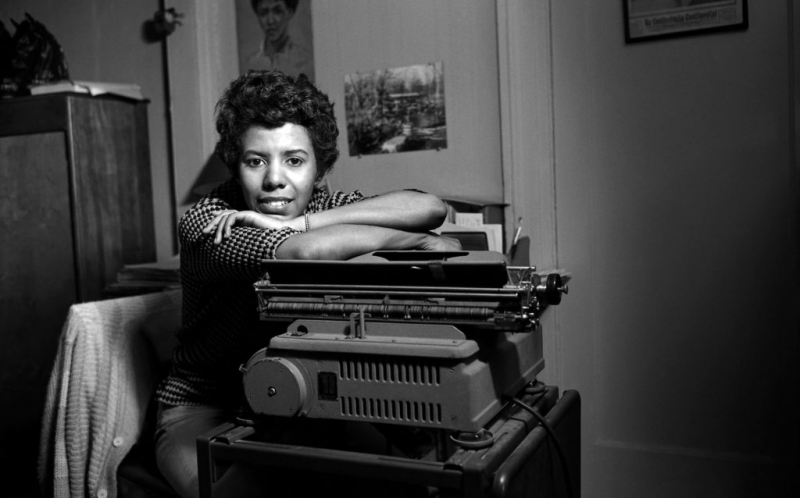
https://www.pbs.org/ 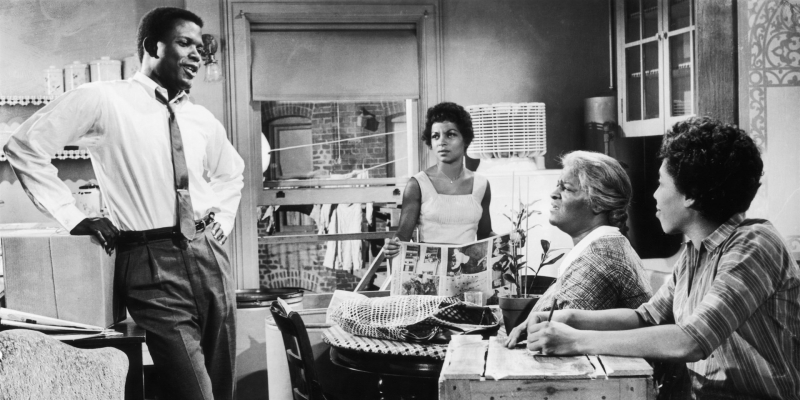
https://www.microsoft.com/ -
This is one of the Best Plays Of All Times. Georg Büchner wrote the play Woyzeck for the theatre. While writing the play from July to October 1836, Büchner left it unfinished when he passed away in February 1837. Karl Emil Franzos' substantially altered version of the drama initially appeared in 1877, and on November 8, 1913, it was staged for the first time at the Residence Theatre in Munich.
Despite being an unfinished script from the early 19th century about a soldier's journey into madness, it has the sense of an experimental drama from a century later. This is partially due to the fact that it is in fact incomplete and so sketchy. Büchner, however, is a pioneer in objectifying persons by identifying them solely by their titles and sets a high bar for dramatizing fever dreams and his lead character's flimsy grasp of reality.
Woyzeck has since grown to be one of the most popular and often performed German dramas. The drama has spawned numerous diverse adaptations since it is incomplete.Written by: Georg Büchner
Created: 1913
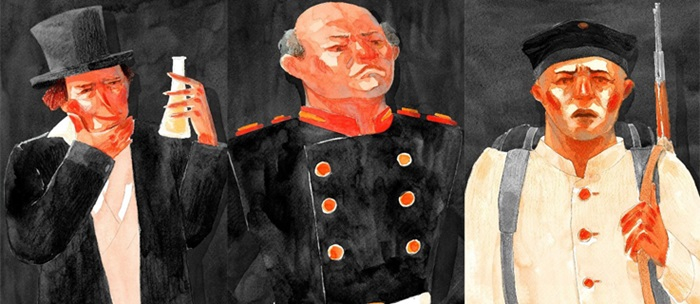
https://hanoigrapevine.com/ 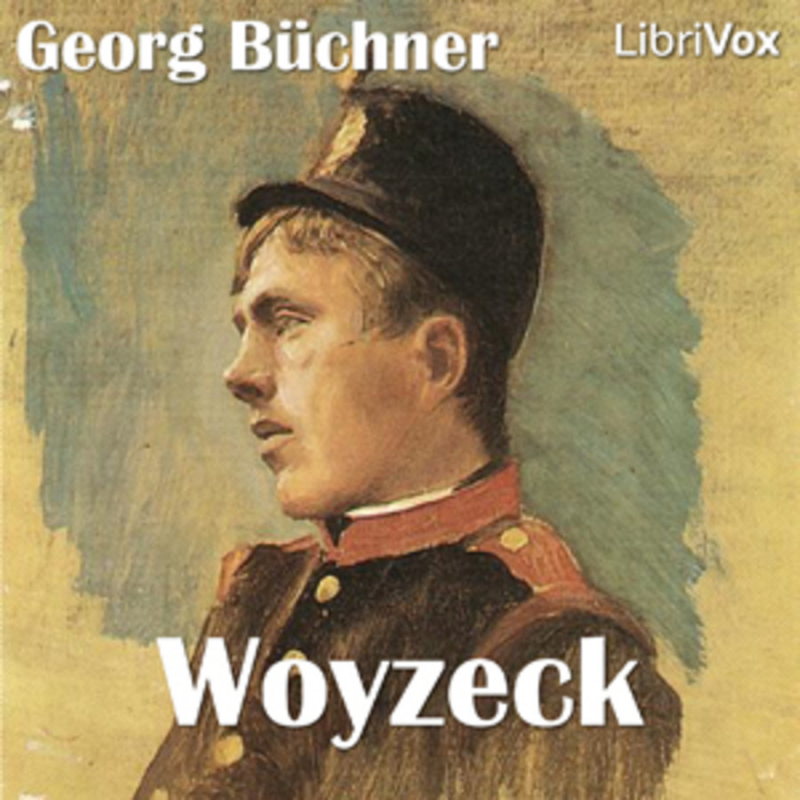
https://archive.org/ -
In Samuel Beckett's play Waiting for Godot, two characters named Vladimir (Didi) and Estragon (Gogo) interact with one another while they wait for the play's titular Godot, who never shows up. When this play first appeared in 1948, a new era in playwriting began. In this play about two tramps waiting for someone named, obviously, Godot on a rather desolate plain, Beckett avoided the usual storyline. When he doesn't appear in the first act, they repeat it in the second with some changes. Are they anticipating some type of twisted God? Is Beckett's play only a representation of the banal truths of everyday life? Both? Whatever the case, Godot brilliantly placed abstraction center stage and continues to do so.
Beckett's translation of his own original play in French, En attendant Godot, is named Waiting for Godot and is described as "a tragicomedy in two acts" (in English only). Between 9 October 1948 and 29 January 1949, the original French text was written. The premiere was held on January 5, 1953, at the Théâtre de Babylone in Paris under the direction of Roger Blin. In 1955, the English-language version made its debut in London. It was chosen as the "most significant English-language play of the 20th century" in a survey held by the British Royal National Theatre in 1998–1999.
Written by: Samuel Beckett
Created: 1953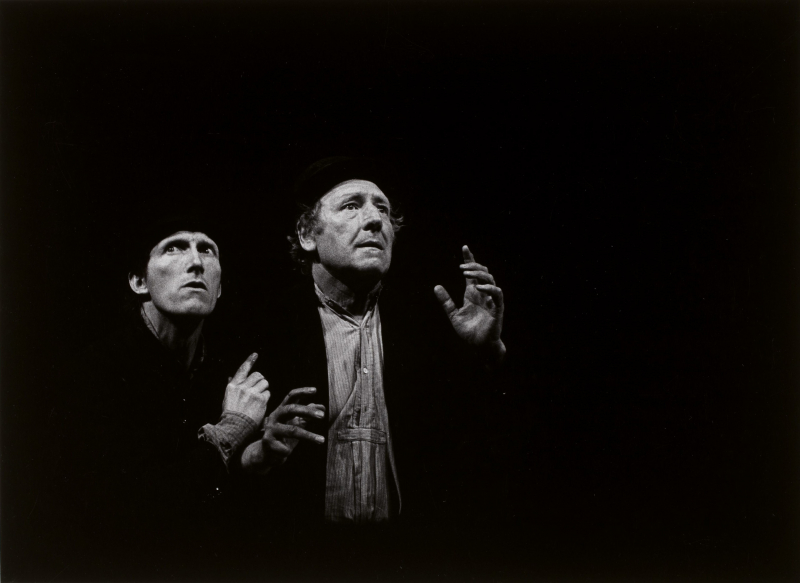
https://en.wikipedia.org/ 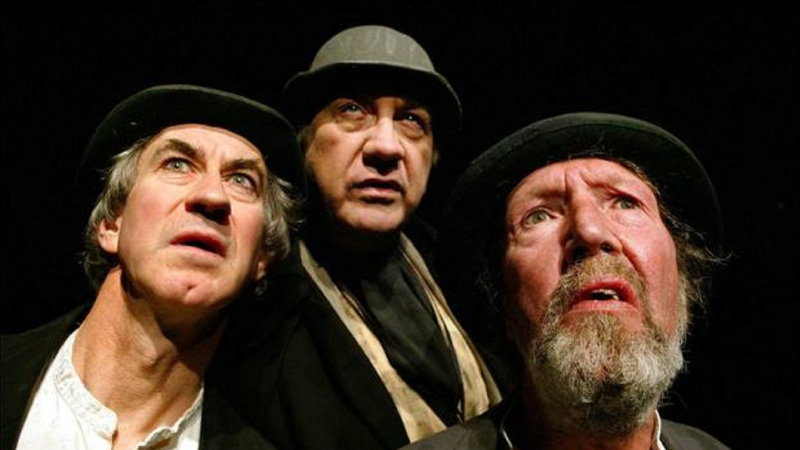
https://www.kennedy-center.org/ -
Eugène Ionesco, a Romanian-French playwright, wrote his debut play, La Cantatrice chauve, often known as The Bald Soprano or The Bald Prima Donna. This French classic simultaneously blew the roof off the homes where drawing-room comedies had historically been performed, putting the life of the complacent bourgeois—and by extension, the worlds of many theatergoers—through an absurdist prism. In this drama about two couples and the two evenings they spend visiting one another, language, narrative, and character all get zanily and sharply fragmented. Nobody had ever seen anything quite like it when the play made its debut in 1950.
The play with the longest continuous run in the same theater is The Bald Soprano, which currently holds the record. Although it initially received little attention, the play later gained the support of some renowned authors and reviewers and ultimately received praise from the critics. The Bald Soprano was acknowledged as a modern classic and a significant formative piece in the Theatre of the Absurd by the 1960s. It has received a record number of interpretations and has risen to the top of the list of plays performed in France.
Written by: Eugene Ionesco
Created: 1950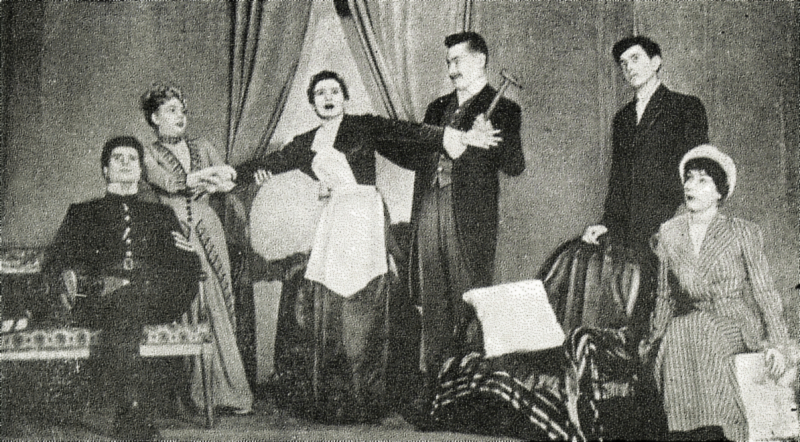
https://en.wikipedia.org/ 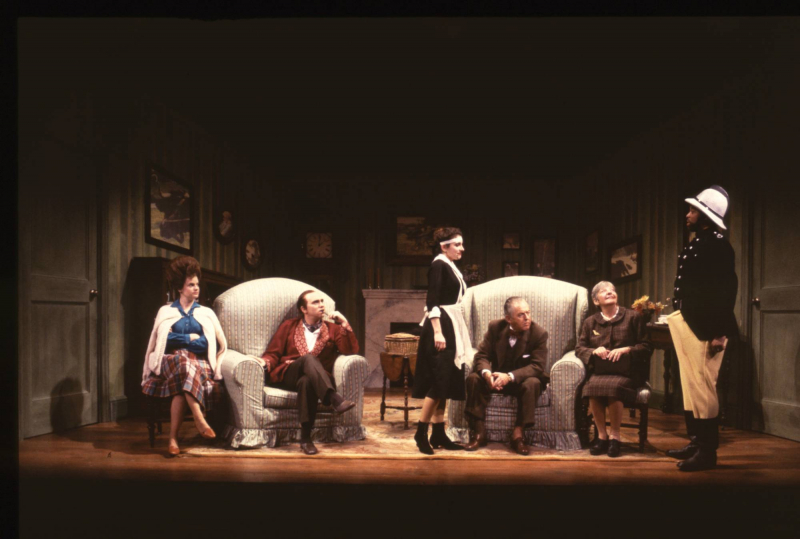
https://americanrepertorytheater.org/ -
Henrik Ibsen, a Norwegian playwright, is the author of the play Hedda Gabler. At Munich's Residenztheater on January 31, 1891, the world premiere performance took place. Ibsen himself was present, though he stayed in the wings. Within the categories of literary realism, theatre from the nineteenth century, and international theater, the play has been canonized as a masterpiece. Up to his explorations into modern drama, Ibsen primarily composed realistic plays. The play Hedda Gabler dramatizes the struggles of the main character, a general's daughter who is shackled to an unwanted marriage and home.
What should a lady do if her marriage is awful? Ibsen, a Norwegian playwright, responded to questions throughout his career. With Hedda, suicide ends up being the only way out. Although Hedda doesn't deliver nearly the same feminist blow as another Ibsen play (A Doll's House, in which Nora just left), Hedda is nonetheless present for that reason. This play unequivocally displays Ibsen's commitment to forcing his viewers to think about feminist issues in the 19th century by giving them such a bleak conclusion.
Hedda Gabler's title character is regarded as one of the greatest dramatic roles in theater overall. The play got unfavorable comments and reviews in the year after its release. Some people have compared Hedda Gabler to a female version of Hamlet.Written by: Henrik Ibsen
Created: 1890
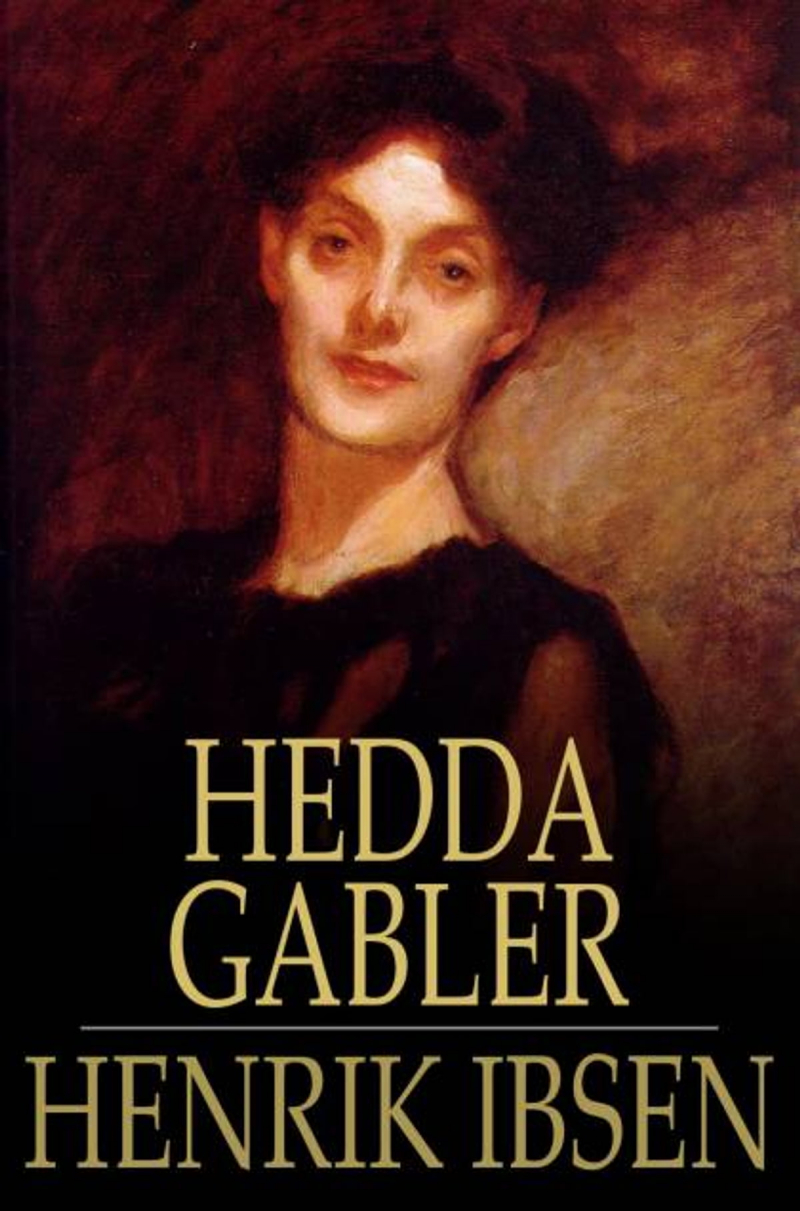
https://www.kobo.com/ 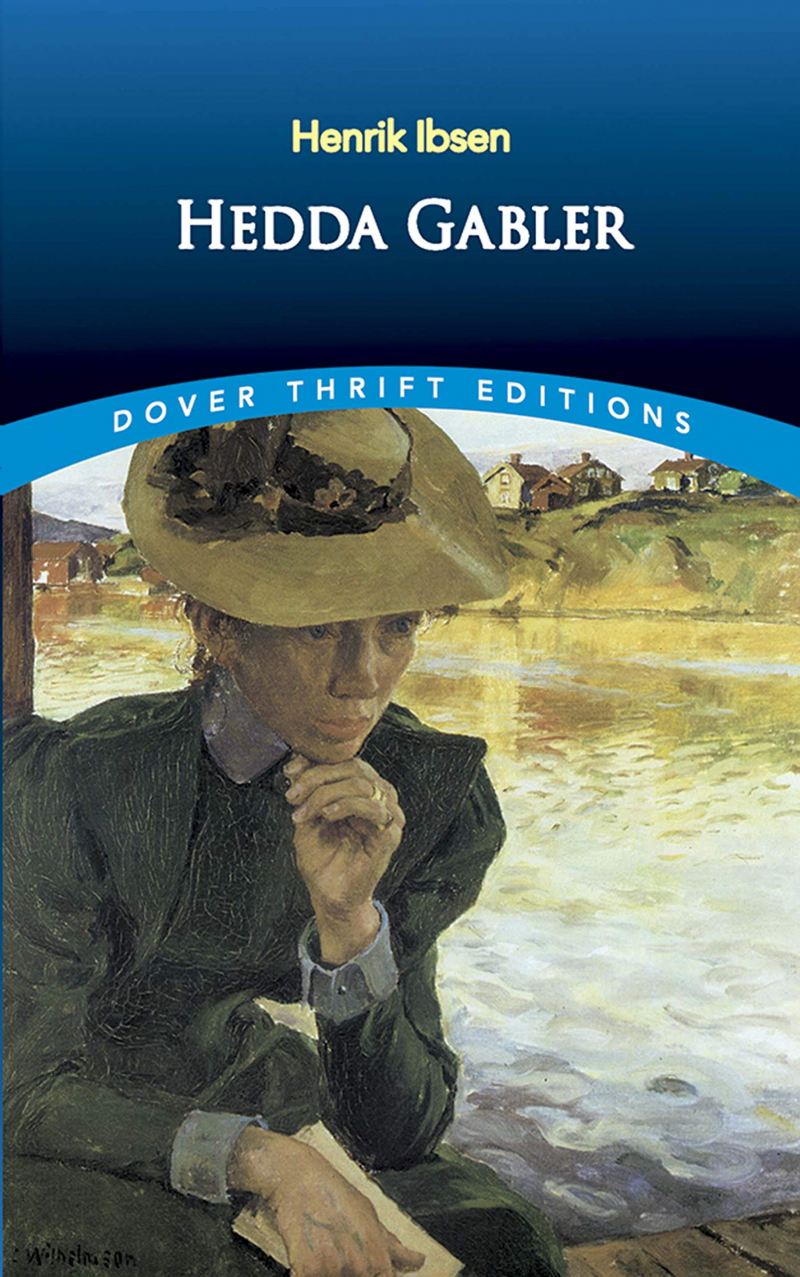
https://www.amazon.com/ -
Harold Pinter wrote the two-act drama The Homecoming in 1964, and it was originally released in 1965. This is one of the Best Plays Of All Times. Both of its world premieres—in London in 1965 and New York in 1967—were overseen by Sir Peter Hall. The 1967 Tony Award for Best Play went to the Broadway version. For "Best Revival of a Play," its 40th anniversary Broadway staging at the Cort Theatre received a 2008 Tony Award nomination.
The play's North London setting has six characters. Five of them are males who are related to one another: Sam, a driver; Max, a retired butcher; and Max's three sons: Teddy is a professor of philosophy in the United States; Lenny, a pimp who only casually mentions his "employment," his customers, and his apartments in the city (London); and Joey, a monster who works in demolition while studying to be a professional boxer.
Only Ruth, Teddy's wife, is present. The "homecoming" that Teddy and Ruth experience in the play has quite different symbolic and thematic ramifications. Pinter's first wife, Vivien Merchant, played Ruth in both the original plays and the subsequent film of the same name.Written by: Harold Pinter
Created: 1965
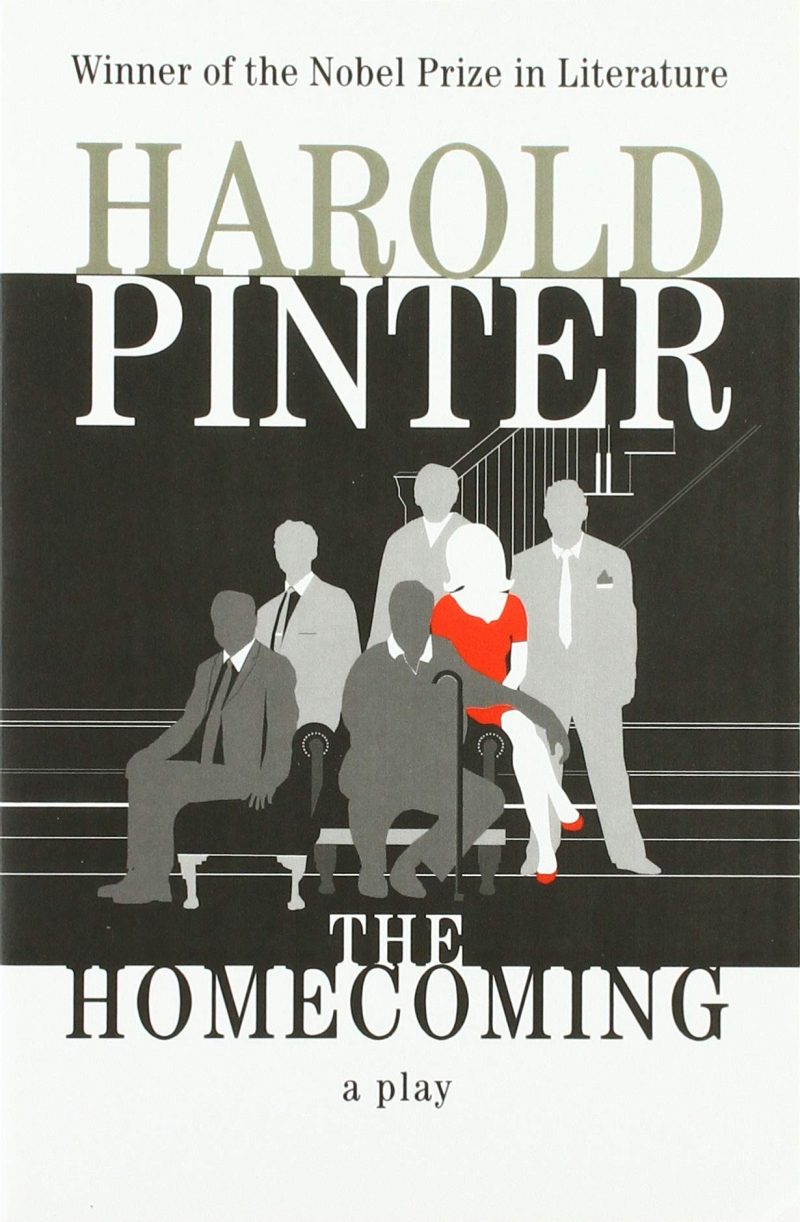
https://www.amazon.com/ 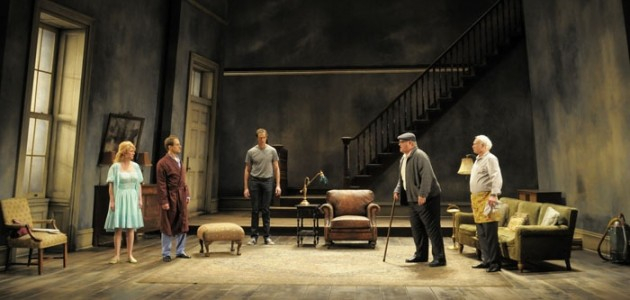
https://thehomecomingweb.wordpress.com/ -
The 1928 drama Machinal by American writer and journalist Sophie Treadwell was based on the true story of Ruth Snyder, a murderer who was found guilty and put to death. One of the pinnacles of Expressionist theatre on the American stage is thought to be its Broadway premiere, directed by Arthur Hopkins.
A young woman who lives with her mother and holds a low-level stenographer job. She abides with the socially prescribed rituals for women, despite her feelings of resistance. She marries her boss later on, who she considers disgusting. She had an affair with a younger man after having a child with him, who feeds her passion for life. She is found guilty of the crime and put to death in the electric chair after being driven to kill her husband.
In this 1928 play, expressionism and feminism clash to highlight how many women were seen as disposable things at the turn of the 20th century. Life passes cruelly quickly for the play's protagonist as she transitions from an office job to a marriage to the electric chair. For good reason, it has established itself as a staple of both the theater and the classroom. Machinal has been mentioned on a number of top plays lists.
Written by: Sophie Treadwell
Created: 1928
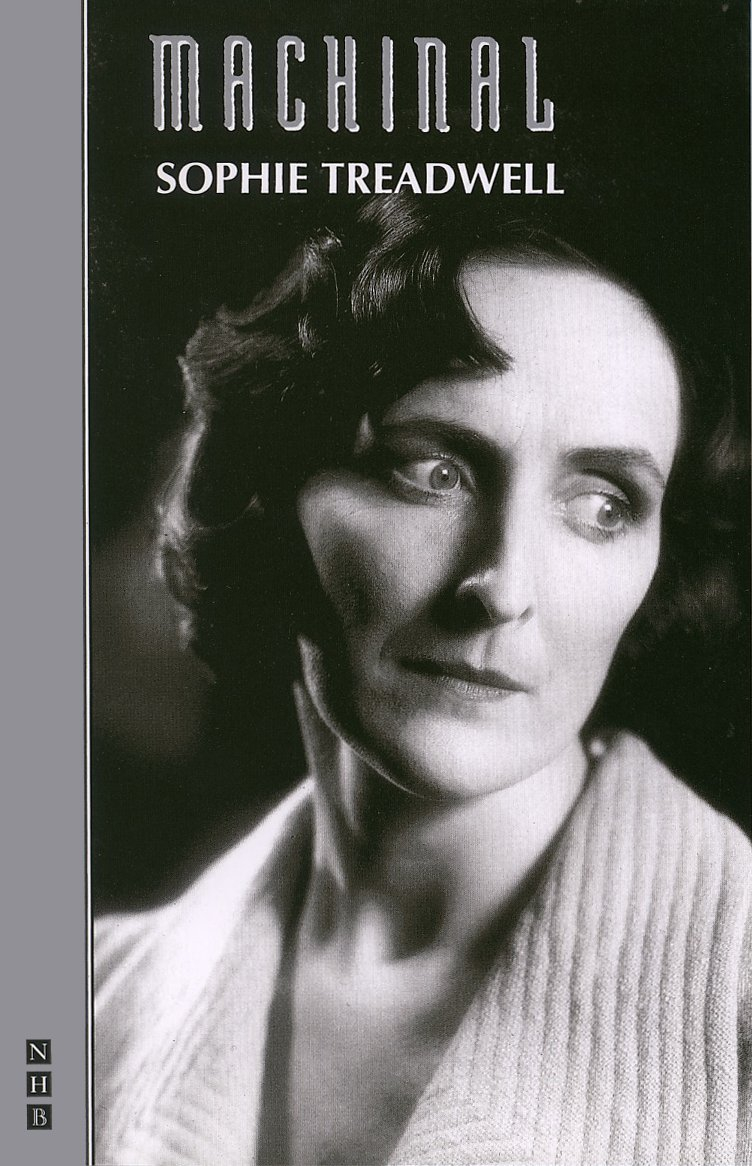
https://www.amazon.co.uk/ 
https://www.berkshirefinearts.com/

















